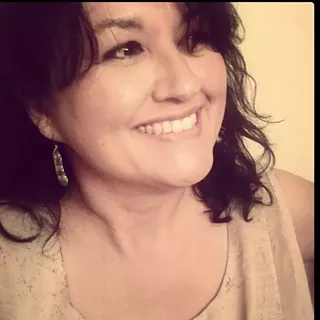Janice Nargi is a registered nurse and the mother of two sons. One is a UA student; the other, she hopes, is continuing his recovery from heroin addiction. More than a year ago, she started a private Facebook support group for parents and others dealing with heroin addiction. She also wrote a book, There Is No Hero in Heroin, detailing her family's experience; she started a foundation with the same name. On Thursday, Nov. 8, from 7 to 8:30 p.m., Nargi will participate in a forum regarding the opiate epidemic in Tucson. Mayor Jonathan Rothschild will be there, along with Tucson Police Chief Roberto Villaseñor, at the Patrick K. Hardesty Midtown Multiservice Center, 1100 S. Alvernon Way. For more information, call their helpline at 329-3098, or visit tinhihfoundation-com.webs.com.
How did you start the foundation?
The foundation actually started based on a support group I started on Facebook. It's a private support group of about 300 members. When we reached about 100 people, we had a Black Monday event. ... It kinda went viral and went to over 750 places all over the United States, and in South Africa, Italy, England and British Columbia.
What's one of your goals?
There's nothing out there for parents to get the information we need. We can find resources, but it's really difficult. We want to be that hub where they can get the help they need. Often, doors are closed in the community.
What kind of red tape exists out there?
Sometimes, our children are not in the system yet, and haven't been arrested, so they can't get the treatment they need. Sometimes, it's a lack of resources and funding, because the parents don't have the $300 a month or more to send your child (for treatment).
What's your personal connection to heroin addiction?
My son. He started with Oxycontin and graduated to heroin, and he's 22 now. My other son is a junior at the UA. I thought I would know the symptoms, but I didn't. I was an emergency-room nurse. I was quite embarrassed. My book is about my journey with my son.
Is he in complete recovery?
He professes to be. ... I have limited contact with him.
What symptoms do you wish you had paid attention to more?
He isolated himself from his brother. He was always asking for $20 for this, and $20 for that. He was always falling asleep when watching TV or nodding off during a conversation. He was always telling me he was sick, which were actually withdrawals. And his pupils would get very dilated. Spoons were often missing, and I'd find ... tin foil all over the place.
What was it like trying to get help?
I went to the school, but they were too busy. When he was 15, I realized he was using and selling, and I collected information on 13 kids in the school, and gave the school that information on a silver platter. They told me they would talk to the parents. A year and a half later, one of those kids stole from my house, and I went to the parents. They had no idea. We weren't allowed to hand out fliers about addiction and drugs at the school. They didn't want it to be a known problem.
How do people get on the private support page on Facebook?
Anyone who "friends" me, I put them on the page, no questions asked, or they can message me.
What's the goal of the town hall forum?
This is just a springboard for other community events, with the foundation planning monthly community events or movies or rehab day. We're also trying to get the mayor to help us put together a school-district group to work on prevention and strategies.
You also want to see Arizona pass a "911 Good Samaritan" law, right?
It is now in 11 other states. It is meant to protect the one who overdoses and the person who calls to report the overdose from being busted. It doesn't protect them from bigger crimes. It's a way to offer some type of immunity before someone dies.
Sounds like a good bipartisan issue.
Gov. Jan Brewer asked me to send a copy of the bill, and Mayor Rothschild is interested. ... I'm trying to help us become one of those villages that raises the children, rather than looks away.




